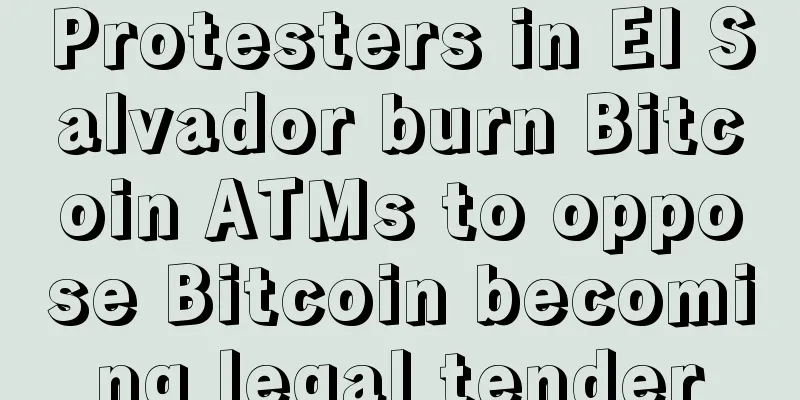Researcher at Sandia National Laboratories: Legalization of Bitcoin will help it become more popular

|
Andrew Cox, chief researcher at Sandia National Laboratories (SNL), said they have successfully developed an analytical tool for US law enforcement agencies that can be used to combat illegal use of Bitcoin. In addition, this method will also help popularize Bitcoin. Sandia National Laboratories (SNL) is a research and development center funded by the U.S. federal government. Since its establishment more than 60 years ago, it has been committed to using technology to solve various security problems. Cox said:
He said the Bitcoin analysis tool is adapted to the direct needs of law enforcement and can significantly reduce the time and resources spent tracking illegal commerce. The tool facilitates the work of government agencies, as there are few legal technology tools available to combat illegal use cases. Bitcoin can also inspire innovation, but while creating legitimate use cases, it can also be abused by criminals. Cox said:
Popularizing the benefits of BitcoinPopularizing Bitcoin can make cash business more efficient, reduce business costs, and make transaction history more transparent, which is good for financial markets and financial regulators. At the same time, it can also reduce the risk of inflation and reduce reliance on centralized monetary systems. On the other hand, Bitcoin may be used for illegal transactions, such as drugs, guns, and pornography. Criminals choose Bitcoin in part because of its anonymity, which makes it difficult for law enforcement to track user transactions. Sandia National Laboratories is part of the U.S. Nuclear Security Administration (NNSA) and provides security services to multiple federal, state, and local government agencies, businesses, and organizations. The Bitcoin analysis tool was developed under the authorization of the U.S. Department of Homeland Security (DHS) and will soon be distributed to each relevant law enforcement agency. Sandia created a system to analyze illegal e-commerce use cases for Bitcoin. They simulated a research environment and used multiple algorithms to remove the anonymization features enjoyed by illegal Bitcoin users. This included a combination of traditional and innovative investigative techniques, and also involved financial regulators, innovative policies, and various processing tools. Once de-anonymization is achieved, law enforcement agencies can link each Bitcoin address to its corresponding pseudonym (determined by the government), and the government will then know who owns all Bitcoin addresses.
While Bitcoin adoption remains low for a variety of reasons, it is certainly here to stay, and this tool raises the question of whether government regulation of the digital currency will encourage more people to participate in the digital revolution. For example, in Japan, since the virtual currency bill was passed in May this year, confirming the legal status of Bitcoin, the country's Bitcoin trading volume has soared. So the question is: Will the United States (or other countries) follow a similar path? |
<<: Four blockchain companies are focusing on secure digital identity solutions
>>: Yours Network: A decentralized media platform based on Bitcoin is sustainable
Recommend
Mole diagram: Moles that cause financial loss and bad luck
Mole diagram: Moles that cause financial loss and...
Spanish police seize illegal cryptocurrency mining operation
On August 21, the Spanish National Police dismant...
Physiognomy: A General Discussion of the Five Mountains and Four Rivers Diagram
Physiognomy: A General Discussion of the Five Mou...
Bitmain has terminated its partnership with DMG, an overseas mining farm operator, in Texas
According to BlockBeats, Bitmain has cancelled it...
Putin's advisor says Bitcoin is a virus, making his anti-Bitcoin stance clear
Author: GTong The Russian government has always b...
Chia FOMO explains the economic accounts: what are the costs and benefits?
Risk Warning According to the "Risk Warning ...
Is the life of a man with three white eyes good? Analyze the life of a man with three white eyes
Men with lower eyes like to control others If a m...
What kind of palm is good for women?
It is said that life and death are determined by ...
How to tell a woman's personality from her face
In addition to revealing a person's destiny a...
What does palmistry say about people whose palm lines are almost invisible?
Although you can tell your fortune by looking at ...
What kind of personality does a woman with a pointed mouth have?
As we all know, the shape of the mouth can reflec...
What are the characteristics of a woman who can help her husband?
If some women have the look that will bring good ...
What does a mole near the ear mean?
A mole on the ear represents a certain meaning, a...
The real cost of Bitcoin transactions is only the mining fee? You are too naive
It seems that the Bitcoin community has not corre...
Nose fortune telling: What is a rich nose?
1. The root of the nose of wealth and honor Gener...









